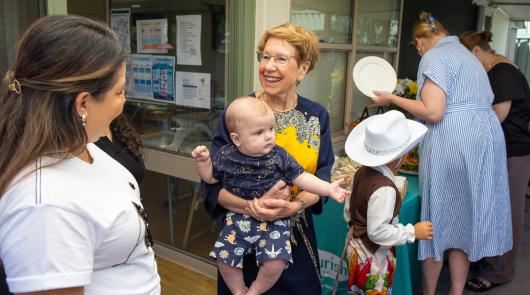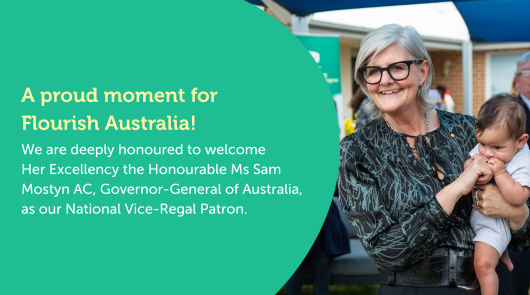A landmark book called Peer work in Australia sets a new global standard for recognising the importance of people living with mental health issues helping ‘peers’ on their recovery journeys.
Launched by Federal Health Minister Greg Hunt at Parliament House on 12 September, Peer work in Australia has been applauded by mental health sector leaders as a ground-breaking road map of the peer work concept.
The book has been created by two of Australia’s leading community mental health support agencies, Mind Australia Limited and Flourish Australia.
One of the most comprehensive overviews of peer work ever produced, the book covers Australia’s pioneering role and how peer work has been embraced by mainstream mental health services locally and abroad over the past 20 years.
Peer support involves training people with their own lived experience of a mental health issue to support and guide others who have further to go on their recovery journeys. It’s often the case that people in need of help will relate with and learn from peers who have ‘walked the walk’ of mental health recovery.
Peer support is now seen as a pillar of mental health recovery, a reliable and cost-effective way of guiding people with mental health issues to meaningful and independent community living. Too often people with mental health issues feel isolated and struggle through cycles of stigma, unemployment, drug abuse, hospitalisation and incarceration.
The book features a panoramic review of peer work in Australia by foremost consumer rights advocates Janet Meagher AM, Anthony Stratford, Erandathie Jayakody, Fay Jackson and Tim Fong from Mind Australia and Flourish Australia. Other contributors include NDIA mental health advisor Dr Gerry Naughtin and other advocates, service providers, academics, funding agents and policy makers.
Mind and Flourish Australia’s lived experience teams detail their organisations’ struggles and achievements in pioneering and realising the mental health care paradigm shift from institutionalisation and paternalism to recovery and independent living.
The book is an invaluable guide to anyone with an interest in recovery-orientated mental health support.
Professor Larry Davidson, Director, Program for Recovery and Community Health Yale University School of Medicine notes in the Foreword:
Peer workers can decrease the use of costly acute services like emergency room visits and hospitalisations,while increasing the use of outpatient care; and… reduce the use of alcohol and demoralisation, while increasing hope, empowerment, and self-care.
This evidence has been important in establishing the credibility and effectiveness of peer work, but it does not tell people how to do it, how it works, or what it looks like in practice. This book will begin to fill that important gap in the literature, enabling others to transform their own pain and suffering into a constructive tool to alleviate the pain and suffering of others.


